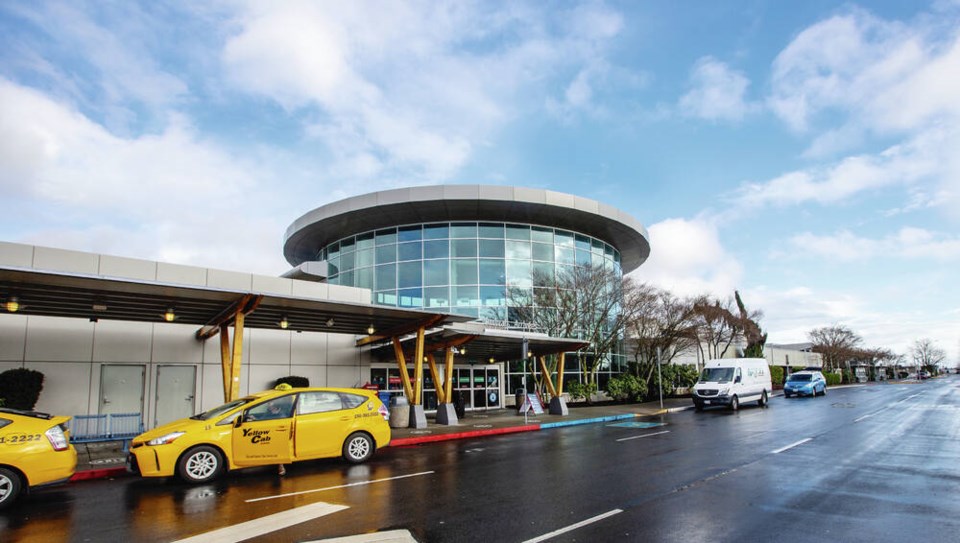Travel during a global pandemic comes with a few hard and fast rules — get COVID insurance, plan for contingencies and ensure you have plenty of patience.
According to veteran travel agent and world traveller Cathy Scott, those steps are all key if you’re planning to leave Canada and want to avoid unnecessary headaches — and, in some cases, hefty fines — on the return trip.
“The No. 1 thing is you have to take out COVID travel insurance,” said Scott, chief exploration officer and owner of Departures Travel, located in Victoria and Sidney. “I’m not even talking about medical insurance, which is a given, as you’re not going to go anywhere without medical insurance, but this is COVID insurance.”
Don’t even consider travelling without COVID insurance, which is still evolving and has only recently expanded to include cancellation insurance, Scott said, noting the cancellation clause is essential if you’re staying at a resort and you test positive just before you’re due to return home.
“The COVID insurance will cover you for extra stays — it will cover a certain amount per night.”
Scott and other agents are spending a lot of time educating would-be travellers because rules can change quickly, as all Canadians have seen at both the provincial and federal levels.
A better understanding of the rules may have helped a couple of local travellers who were recently fined $5,750 each for returning to Canada after testing positive for COVID.
Aidan Carkeek and a travelling partner, both fully vaccinated, left the Island for a road trip in the U.S. in mid-December. The long-planned trip was cut short when they were in an accident. They had to rent a vehicle to return to Canada.
The pair made their way to Seattle, where they took an expensive PCR test, with results to be forwarded via text within two hours.
They filled out the ArriveCan app form as they drove to the Canadian border. Before they hit the border, their results arrived, showing both had tested positive.
They said they consulted the app and the Government of Canada website for guidance, and believed they were able to re-enter Canada as long as they immediately isolated.
But they were told by Canada Border Services and a public health agency representative that they should not have approached the border with a positive test result, and instead, should have isolated immediately in a hotel in the U.S.
The pair were fined for failing to comply with public health orders and told to proceed with their quarantine plan, which included returning to the Island.
Carkeek, who has a business in Sidney, said despite a second PCR test coming back negative, he still had to maintain the quarantine for 10 days.
Public Health Canada told the Times Colonist that Canadian citizens have a right to re-enter Canada from the U.S. if they can provide a negative COVID test taken in the U.S., or a positive test that was taken 14 to 180 days before re-entering Canada.
A statement said a positive result from a test taken the same day as attempting to cross the border would not qualify and the traveller would be in contravention of the Emergency Order in Council and may be subject to enforcement measures, such as large fines or criminal prosecution.
“Government representatives at Canada’s ports of entry will review the traveller’s isolation plans and confirm they have private transport to their isolation location,” Public Health Canada said.
Scott, who recently returned from Antarctica, said beyond insurance and planning for worst-case scenarios, travellers should pack patience.
She said rules and regulations change quickly, and travellers are often dealing with different languages and interpretations of the rules — and with agencies, companies and border services that are often under-staffed because of the pandemic — so things can take more time than expected.
Despite all the obstacles, many people continue to travel, Scott said. “Certainly not anything like the norm,” she said. “But we’ve got some clients who are just done and sick of staying at home. They’re just taking all the protocols and the precautions, and they’re going anyway.”
Most travellers getting on planes now are the intrepid ones who are not wired to stay home, Scott said.
“I’m in the business but I don’t like to encourage anybody to do things that are going against what Dr. Bonnie Henry has said,” she said. “We really are still telling our clients: ‘This is really the time to go stay home,’ but we have clients who are just going to do it.
“And so we want to make sure that those ones that are committed to go, that they’re taking care.”



